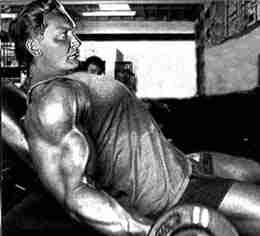
1009 Lithuania: The first known record of the name appears in an entry in the annals of the monastery of Quedlinburg (in modern Germany).
1862 Battle of Hampton Roads: The first battle between ironclads occurs as the armored USS Monitor fights the ironclad ram CSS Virginia. The outcome is inconclusive. (Sondhaus) The next day, Lincoln received ominous news from Fort Monroe on the Virginia coast. A rebel ironclad, a hulking monster named the Virginia, had steamed out of Norfolk, descended on the Union fleet off Hampton Roads, and rammed and battered the wooden ships as though they were toys. Lincoln held an emergency Cabinet meeting, with some of the Secretaries beset with apocalyptic visions—of the rebel behemoth churning up the Potomac, obliterating McClellan's wooden troopships, shelling Washington and putting the government to flight, and then bombarding the other Northern cities. Lincoln was anxious, too, going repeatedly to his office windows to see if the Virginia were approaching. But late that afternoon came a heartening dispatch: a little Union ironclad called the Monitor, with two guns mounted in a revolving turret, had dueled the Virginia to a draw that day. After the two vessels had bounced shells off one another for several hours, the Virginia had turned around and sailed back to Norfolk. The Virginia was neutralized; the blockade seemed safe for now. 1890 Birth: Vyacheslav Mikhailovich Molotov: a leading figure in the Soviet government from the 1920's, when he rose to power as a protege of Joseph Stalin, to 1957, when he was dismissed from Presidium (Politburo) of the Central Committee by Nikita Khrushchev. He was the principal Soviet signatory of the Nazi-Soviet non-aggression pact of 1939 (also known as the Molotov-Ribbentrop Pact). The Molotov cocktail was named after him. 1915 World War I: Gefreiter Adolf Hitler's 16th RIR [List Regiment] is decamped and marched off to the industrial town of Tourcoing: a seven-hours march. All night long, one could hear the singing regiments and troop units pull through the streets. We moved out of Comines like moving away from home. The French people and the remaining German troops stood in the street everywhere, to wish us farewell. People were waving after us from all the windows—Naturally we were in a cheery mood, as we were moving towards a better future. [For further details, Click here.] 1916 World War I: Various:
Germany declares war on Portugal:
With the outbreak of World War I in 1914, Portugal became increasingly anxious about the security of its colonial holdings in Angola and Mozambique. In order to secure international support for its authority in Africa, Portugal entered the war on the side of Britain and the Allies. Its participation was at first limited to naval support. In February 1917, however, Portugal sent its first troops‑-an expeditionary force of 50,000 men‑-to the Western Front. They saw action for the first time in Belgium on June 17 of that year.
One notable battle in which Portuguese forces took part was the Battle of Lys, near the Lys River in the Flanders region of Belgium, in April 1918. It was part of the major German offensive‑-the last of the war‑-launched that spring on the Western Front. During that battle, one Portuguese division of troops was struck hard by four German divisions; the preliminary shelling alone was so heavy that one Portuguese battalion refused to push forward into the trenches. All told, the victorious Germans took more than 6,000 prisoners in that conflict and were able to push through enemy lines along a three-and-a-half mile stretch. By the time World War I ended, a total of 7,000 Portuguese soldiers had died in combat. (History.com)
Pancho Villa raids U.S.:
In the early morning of March 9, 1916, several hundred Mexican guerrillas under the command of Francisco "Pancho" Villa cross the U.S.-Mexican border and attack the small border town of Columbus, New Mexico. Seventeen Americans were killed in the raid, and the center of town was burned. It was unclear whether Villa personally participated in the attack, but President Woodrow Wilson ordered the U.S. Army into Mexico to capture the rebel leader dead or alive.
Before he invaded the United States, Pancho Villa was already known to Americans for his exploits during the Mexican Revolution. He led the famous Division del Norte, with its brilliant cavalry, Los Dorados, and won control of northern Mexico after a series of audacious attacks. In 1914, following the resignation of Mexican leader Victoriano Huerta, Pancho Villa and his former revolutionary ally Venustiano Carranza battled each other in a struggle for succession. By the end of 1915, Villa had been driven north into the mountains, and the U.S. government recognized General Carranza as the president of Mexico.
In January 1916, to protest President Woodrow Wilson's support for Carranza, Villa executed 16 U.S. citizens at Santa Isabel in northern Mexico. Then, in early March, he ordered the raid on Columbus. Cavalry from the nearby Camp Furlong U.S. Army outpost pursued the Mexicans, killing several dozen rebels on U.S. soil and in Mexico before turning back. On March 15, under orders from President Wilson, U.S. Brigadier General John J. Pershing launched a punitive expedition into Mexico to capture Villa and disperse his rebels. The expedition eventually involved some 10,000 U.S. troops and personnel. It was the first U.S. military operation to employ mechanized vehicles, including automobiles and airplanes.
For 11 months, Pershing failed to capture the elusive revolutionary, who was aided by his intimate knowledge of the terrain of northern Mexico and his popular support from the people there. Meanwhile, resentment over the U.S. intrusion into Mexican territory led to a diplomatic crisis with the government in Mexico City. On June 21, the crisis escalated into violence when Mexican government troops attacked a detachment of the 10th Cavalry at Carrizal, Mexico, leaving 12 Americans dead, 10 wounded, and 24 captured. The Mexicans suffered more than 30 dead. If not for the critical situation in Europe, war might have been declared. In January 1917, having failed in their mission to capture Villa, and under continued pressure from the Mexican government, the Americans were ordered home.
Villa continued his guerrilla activities in northern Mexico until Adolfo de la Huerta took power over the government and drafted a reformist constitution. Villa entered into an amicable agreement with Huerta and agreed to retire from politics. In 1920, the government pardoned Villa, but three years later he was assassinated at his ranch in Parral. (History.com)
1917 World War I: Arming of US merchant ships: President Wilson issues a directive after the Attorney General finds that such an order is within the power of the presidency.
1918 World War I: Murmansk: The warship Glory brings the first 200 British soldiers, beginning an armed occupation by the Western powers. These troops are soon followed by even larger detachments of British, French and American forces. The whole of the Murmansk region is soon occupied and the Allies move on to Archangel. (THP)
1923 Birth: Walter Kohn: Austrian-born American physicist who, with John A. Pople, received the 1998 Nobel Prize in Chemistry. The award recognized their individual work on computations in quantum chemistry. Kohn's share of the prize acknowledged his development of the density-functional theory, which made it possible to apply the complicated mathematics of quantum mechanics to the description and analysis of the chemical bonding between atoms.
1925 Weimar: Bavarian Prime Minister Heinrich Held banns Hitler from public speaking; citing his February 27 speech as a reason. Hitler is now banned from 6 states. (Maser)
1927 Weimar: Hitler makes his public reappearance in Munich. (Maser)
1932: China's last emperor—Japanese puppet: Henry Pu Yi, who reigned as the last emperor of China from 1908 to 1912, becomes regent of the Japanese puppet state of Manchukuo, comprising the Rehe province of China and Manchuria.
Enthroned as the emperor Hsian-T'ung at the age of three, he was forced to abdicate four years later in Sun Yat-sen's republican revolution. He took the name of Henry and continued to live in Beijing's Forbidden City until 1924, when he was forced into exile. He settled in Japanese-occupied Tianjin, where he lived until his installment as the puppet leader of Manchukuo in 1932. In 1934, he became K'ang Te, emperor of Manchukuo. Despite guerrilla resistance against his puppet regime, he held the emperor's title until 1945, when he was captured by Soviet troops in the final days of World War II.
In 1946, Pu Yi testified before the Tokyo war crimes tribunal that he had been the unwilling tool of the Japanese and not, as they claimed, an instrument of Manchurian self-determination. Manchuria and the Rehe province were returned to China, and in 1950 Pu Yi was handed over to the Chinese communists, who imprisoned him at Shenyang until 1959, when Chinese leader Mao Zedong granted him amnesty. After his release, he worked in a mechanical repair shop in Peking. He died on October 17, 1967. (History.com)
1933 Nazi Germany: Various: Bavaria: Heinrich Himmler becomes president of Munich's police:
The Nazi state in fact alleviated many of the frustrations the police experienced in the Weimar Republic. The Nazis shielded the police from public criticism by censoring the press. They ended street fighting by eliminating the Communist threat. Police manpower was even extended by the incorporation of Nazi paramilitary organizations as auxiliary policemen. The Nazis centralized and fully funded the police to better combat criminal gangs and promote state security. The Nazi state increased staff and training, and modernized police equipment. The Nazis offered the police the broadest latitude in arrests, incarceration, and the treatment of prisoners. The police moved to take'preventive action,' that is, to make arrests without the evidence required for a conviction in court and indeed without court supervision at all. Conservative policemen were initially satisfied with the results of their cooperation with the Nazi state. Crime did indeed go down and the operation of criminal gangs ended. Order was restored. But there was a price. [See: What Was the Nature of Hitler's Anti-Semitism?]
March 9-10 The SA sponsors a series of anti-Jewish riots throughout Germany. KPD headquarter and individual Communists are searched and attacked by the German police. "The Nazis' insistence on order was hypocritical, of course, since the NSDAP in general and the SA in particular did their utmost to exacerbate the chaos from which they promised to deliver Germany." Julius Streicher celebrates Hitler's takeover with a short speech: My German racial comrades! Shame and disgrace ruled here for fourteen years. Today, however, the flags of National Socialist Germany fly from this building as true symbols of German rebirth. In 1924, the police threw us National Socialists out of this building. Today we enter as victors! Once again, German thinking will hold sway. Cowardice has given way and one now speaks again of German justice, which had formerly been banned. My racial comrades! Do you hear the church bells ringing for the new Germany? Let me say and affirm: "Today is the proudest day of my life! Let us all thank God that it has come! Be thankful that you may experience this hour! Once Hans Sachs was hailed by the citizens of Nuremberg on the festival grounds. Today, all of Nuremberg celebrates Adolf Hitler. The flags now being raised atop this building will fly there forever. He who sins against them deserves death. We have borne many sorrows and made many heavy sacrifices. Daily we met disloyalty and betrayal. We overcame all these difficulties and emerged victorious from the hard battle. This hour is therefore holy to us, and will forever remain so! I have longed for the day when I could tell the Fuehrer that Nuremberg belonged to him. Today is that day! I am reconciled to my fate. I have forgotten the days that are behind me. Nuremberg, the proud city of the Meistersingers, has become German and will forever remain German! Raise high the flags! Adolf Hitler, Fuehrer and Reich Chancellor of Germany: Sieg Heil!
1934 The Einstein Institute of Physics opens at the Hebrew University in Jerusalem.
1935 Nazi Germany: Secret re-armament: Goering:The rearming of the Air Force required, as a basic condition, the creation of a large number of new industries. It was no help to me to build a strong Air Force and not to have any gasoline for it. Here, too, therefore, I had to speed up the development of the refineries to the utmost. There were other auxiliary industries, above all, aluminum. Since I considered the Luftwaffe the most important part of the Wehrmacht, as far as the security of the Reich was concerned, and, in view of the modernization of technical science, it was my duty as Commander-in-Chief to do everything to develop it to the highest peak.
1938 Austria: Chancellor Schuschnigg schedules a plebiscite on the independence of Austria for 13 March. The question is to be: "Are you for an independent and social, a Christian, German and united Austria?" From Franz von Papen's IMT testimony: The plebiscite announced by Herr Schuschnigg was, of course, a complete surprise. In my view it was contrary to the spirit of the arrangements agreed upon at Berchtesgaden and contrary to the tendency of a peaceful settlement of the tension. The plebiscite was a violation of the Austrian Constitution, too. It was not a decision of the Austrian Government but was a spontaneous measure of the Austrian Chancellor, and in my opinion it was quite evident that those elements in Austria who were in favor of a union of the two States were most displeased with this plebiscite.
1941 Holocaust: Bucharest: A few survivors of the violence reach Palestine aboard the SS Darien. See January 23. (THP)
1943 Anthropological experiments: Himmler specifies, in a decree, that only physicians trained in anthropology should carry out selection for killing, and supervise the killings themselves, in extermination camps. (THP) [See: How Widespread Was Guilty Knowledge of the Holocaust?]
1943 World War II: North Africa: Erwin Rommel leaves Africa, never to return. On his way home he meets with Mussolini in Rome and Hitler in East Prussia, but is unable to convince either of them to withdraw from Africa. [See: The Mediterranean Strategy.] 1944 Various: World War II: Estonia: Euthanasia and experiments: Professor Hallervorden writes to Professor Nitsche, the organizer of euthanasia at that time: "I have received 697 brains in all, including those which I took out myself in Brandenburg." (THP)
World War II: FDR and Churchill: Although the Prime Minister instructed Ambassador Clark Kerr to tell you the destroyers we are lending you are old, this was only for the sake of absolute frankness. In fact they are good, serviceable ships, quite efficient for escort duty. There are only seven fleet destroyers in the whole Italian Navy. Moreover, these Italian destroyers when we do get them are absolutely unfitted for work in the North without lengthy refit. Therefore we thought the eight which the British Government had found would be an earlier and more convenient form of help to you. The Prime Minister regrets that he cannot spare any new destroyers at the present time. He lost two the week before last, one in the Russian convoy, and for landing at 'Overlord' alone he has to deploy, for close in-shore work against batteries no fewer than forty-two destroyers, a large portion of which may be sunk. Every single vessel that he has of this class is being used to the utmost pressure in the common cause. The movement of the Japanese Fleet to Singapore creates a new situation for us in the Indian Ocean. The fighting in Anzio bridgehead and generally throughout the Mediterranean is at its height. The vast troop convoys are crossing the Atlantic with the United States Army of Liberation. The Russian convoys are being run up to the last minute before 'Overlord' with very heavy destroyer escorts. Finally there is 'Overlord' itself. The President's position is similarly strained but in this case mainly because of the great scale and activity of the operations in the Pacific. [See: Why Was Churchill Against the D-Day Invasion?]
1945 World War II: Various: Let me offer you my warmest congratulations on the great victory won by the Allied armies under your command, by which the defeat or destruction of all the Germans west of the Rhine will be achieved. No one who studies war can fail to be impressed by the admirable speed and flexibility of the American armies and groups of armies, and the adaptiveness of commanders and their troops to the swiftly changing conditions of modern battles on the greatest scale. I am glad that the British and Canadian armies in the north have played a part in your far-reaching and triumphant combinations. [See: The Last Days of the Third Reich.]
Firebombing of Tokyo:
Early on March 9, Air Force crews met on the Mariana Islands of Tinian and Saipan for a military briefing. They were planning a low-level bombing attack on Tokyo that would begin that evening, but with a twist: Their planes would be stripped of all guns except for the tail turret. The decrease in weight would increase the speed of each Superfortress bomber-and would also increase its bomb load capacity by 65 percent, making each plane able to carry more than seven tons. Speed would be crucial, and the crews were warned that if they were shot down, all haste was to be made for the water, which would increase their chances of being picked up by American rescue crews. Should they land within Japanese territory, they could only expect the very worst treatment by civilians, as the mission that night was going to entail the deaths of tens of thousands of those very same civilians. "You're going to deliver the biggest firecracker the Japanese have ever seen," said U.S. Gen. Curtis LeMay.
The cluster bombing of the downtown Tokyo suburb of Shitamachi had been approved only a few hours earlier. Shitamachi was composed of roughly 750,000 people living in cramped quarters in wooden-frame buildings. Setting ablaze this "paper city" was a kind of experiment in the effects of firebombing; it would also destroy the light industries, called "shadow factories," that produced prefabricated war materials destined for Japanese aircraft factories.
The denizens of Shitamachi never had a chance of defending themselves. Their fire brigades were hopelessly undermanned, poorly trained, and poorly equipped. At 5:34 p.m., Superfortress B-29 bombers took off from Saipan and Tinian, reaching their target at 12:15 a.m. on March 10. Three hundred and thirty-four bombers, flying at a mere 500 feet, dropped their loads, creating a giant bonfire fanned by 30-knot winds that helped raze Shitamachi and spread the flames throughout Tokyo. Masses of panicked and terrified Japanese civilians scrambled to escape the inferno, most unsuccessfully. The human carnage was so great that the blood-red mists and stench of burning flesh that wafted up sickened the bomber pilots, forcing them to grab oxygen masks to keep from vomiting.
The raid lasted slightly longer than three hours. "In the black Sumida River, countless bodies were floating, clothed bodies, naked bodies, all black as charcoal. It was unreal," recorded one doctor at the scene. Only 243 American airmen were lost-considered acceptable losses. (History.com)
Indochina: Imperial Japanese Army officers oust the government of French Indochina. [For further details, click here.]
1954 Cold War: Republican senators criticize Joseph McCarthy:
A Republican senator from Wisconsin, McCarthy had risen to fame in early 1950 when he stated in a speech that there were over 200 known communists operating in the U.S. Department of State. Various other charges and accusations issued forth from McCarthy in the months and years that followed. Although he was notably unsuccessful in discovering communists at work in the United States, his wild charges and sensational Senate investigations grabbed headlines and his name became one of the most famous in America.
Republicans at first embraced McCarthy and his devastating attacks on the Democratic administration of President Harry S. Truman. However, when McCarthy kept up with his charges about communists in the government after the election of Republican Dwight D. Eisenhower in 1952, the party turned against him. Eisenhower himself was particularly disturbed by McCarthy's accusations about communists in the U.S. Army. On March 9, 1954, Republican Senator Ralph Flanders (Vermont) verbally blasted McCarthy, charging that he was a "one-man party" intent on "doing his best to shatter that party whose label he wears." Flanders sarcastically declared, "The junior Senator from Wisconsin interests us all, no doubt about that, but also he puzzles some of us. To what party does he belong? Is he a hidden satellite of the Democratic Party, to which he is furnishing so much material for quiet mirth?" In addition to Flanders' speech, Senate Republicans acted to limit McCarthy's ability to conduct hearings and to derail his investigation of the U.S. Army.
McCarthy's days as a political force were indeed numbered. During his televised hearings into the U.S. Army later in 1954, the American people got their first look at how McCarthy bullied witnesses and ignored procedure to suit his purposes. By late 1954, the Senate censured him, but he remained in office until his death in 1957. His legacy was immense: during his years in the spotlight, he destroyed careers, created a good deal of hysteria, and helped spread fear of political debate and dissent in the United States. (History.com) 1955 Wunderwaffen: The TV show Man in Space, produced by Disney studios, is broadcast to an audience estimated to be between 42 to 100 million. Werner von Braun, Hitler's former chief rocket scientist who is now working for the US, participates, not only as a technical director, but he appears on the show, establishing himself nationally as the foremost proponent of space travel. In precise English, he describes his plans for sending man into space: If we were to start today on an organized, well supported space program. I believe a practical passenger rocket could be built and tested within ten years. On several occasions he worked non-stop for 12 hours at the studio, then took a taxi from Hollywood to Long Beach, about 50 miles away. There he rented a speedboat and piloted it 22 miles across the water to Catalina Island. Once there, von Braun skin-dived all night, then piloted his speedboat back to Long Beach at dawn. He rode a taxi to his hotel for a quick shower, then reported back to Disney for another long day's demanding work on space travel. 1956 Georgia: Soviet military troops suppress mass demonstrations in Tbilisi against Soviet leader Nikita Khrushchev's de-Stalinization policy.
1990 German reunification: Talks begin in Berlin:
During the months following the collapse of the Berlin wall, Chancellor Kohl in Bonn had apparently worked tirelessly towards unification . . . . If Germany was ever to be re-united, now was the time. The people of East Germany were at loose ends. There were many meetings with the Western Allies as well as with the Russian government. It was obvious from news reports that every one's approval was needed. Documents were signed at much publicised meetings, they all reached the agreement for Germany to be re-united. The only thing left was to hammer out an accord with the government of East Germany.
Edited by Levi Bookin (Copy editor) Click to join 3rdReichStudies
FAIR USE NOTICE: This site may contain copyrighted material the use of which has not always been specifically authorized by the copyright owner. We are making such material available in our efforts to advance understanding of historical, political, human rights, economic, democracy, scientific, environmental, and social justice issues, etc. We believe this constitutes a 'fair use' of any such copyrighted material as provided for in section 107 of the US Copyright Law. In accordance with Title 17 U.S.C. Section 107, the material on this site is distributed without profit to those who have expressed a prior interest in receiving the included information for research and educational purposes. If you wish to use copyrighted material from this site for purposes of your own that go beyond 'fair use', you must obtain permission from the copyright owner.
Please note that the list-owner and the moderator are not responsible for, and do not necessarily approve of, the random ads placed on our pages by our web server. They are, unfortunately, the price one pays for a 'free' website.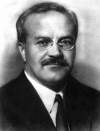

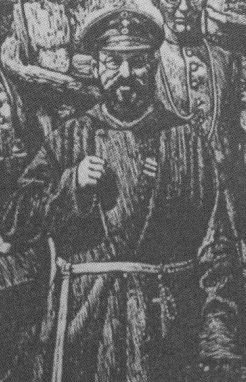

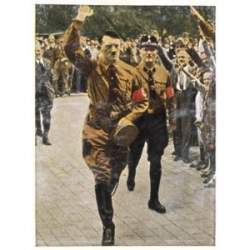
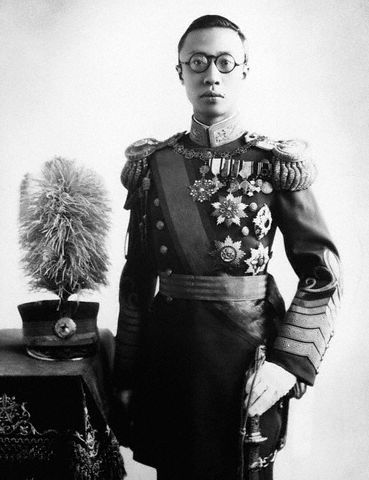
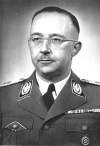
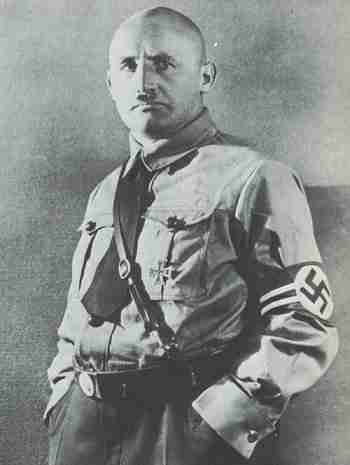

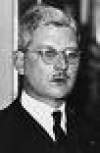
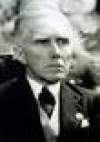
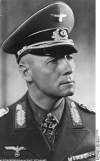
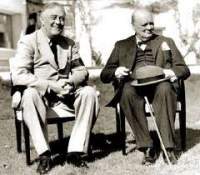


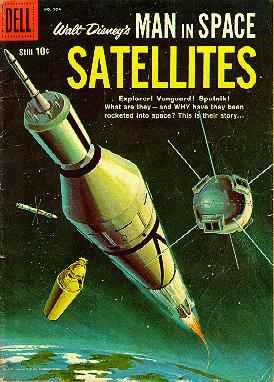
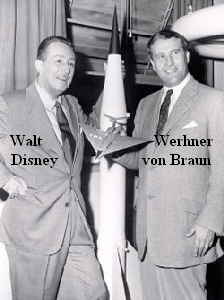
[One night, Shows gave von Braun a lift back to his hotel at the end of the day, asking him along the way if there is anything about America that he does not like.] "Yes," von Braun replies, "I don't like being treated like a foreign spy. Everywhere I go, the FBI has me followed. I can't even go to the bathroom without an FBI man tailing me . . . . Look behind us. That third car behind us has been tailing us since we left the studio. It's FBI men—they're always around. My telephone is bugged, and the FBI reads more of my mail than I do! I hope some day they'll trust me and leave me alone."
levi.bookin@gmail.com







